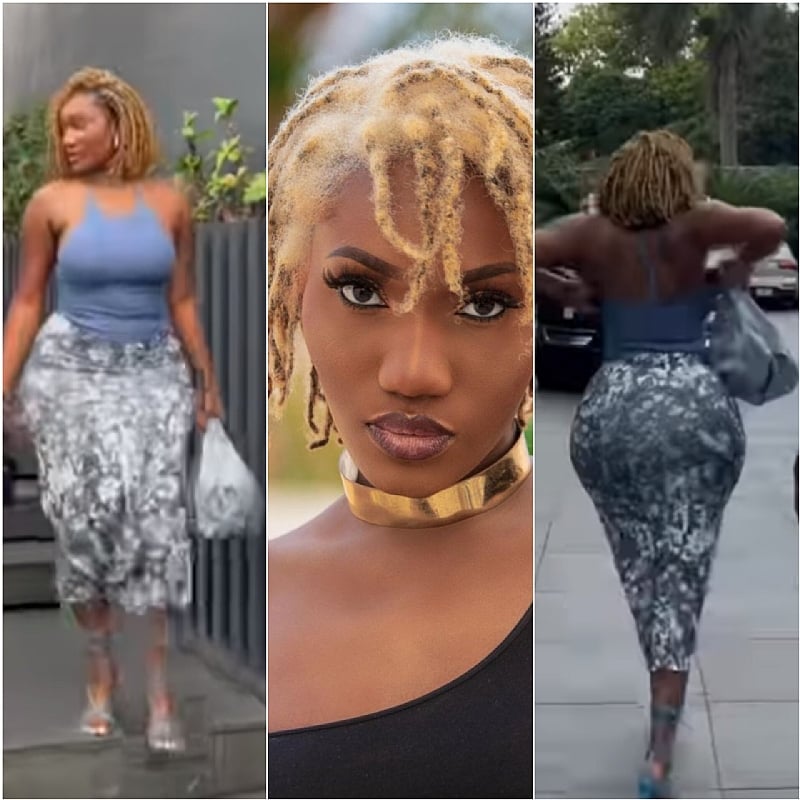Wendy Shay, a prominent figure in the Ghanaian music scene, has recently addressed persistent speculation and criticism regarding her physique, particularly allegations of undergoing a Brazilian Butt Lift (BBL) procedure to enhance her figure. Shay vehemently denies these claims, asserting that her curvaceous body is entirely natural and a product of her genetics. She attributes the ongoing scrutiny to cyberbullying, societal pressures, and a lack of understanding about natural body diversity, especially among African women. Shay’s response highlights a broader conversation about body image, cultural perceptions of beauty, and the pressures faced by women in the public eye to conform to specific aesthetic ideals.
Central to Shay’s rebuttal is her challenge to the prevailing notion that a voluptuous figure is automatically indicative of surgical enhancement. She questions why African women are not readily acknowledged for possessing naturally curvy bodies, implying a bias towards assuming artificial intervention. Her rhetorical question, “Before BBL, Africans didn’t have a natural shape like mine?” underscores this perceived prejudice and calls for a reevaluation of how society perceives and judges female bodies, particularly within the African context. Shay’s stance pushes back against the narrow and often Westernized beauty standards that dominate popular culture and can lead to body shaming and the normalization of cosmetic procedures.
Furthermore, Shay expresses frustration with the constant scrutiny and unsolicited comments about her appearance. She emphasizes the pervasiveness of body shaming, regardless of shape or size, noting that individuals are criticized for having bodies deemed “too big,” “too small,” or “too fake.” This observation highlights the relentless pressure women face to conform to ever-shifting and often unattainable beauty standards. Shay’s experience resonates with many women who are subjected to unsolicited opinions and judgments about their bodies, reinforcing the need for greater acceptance of natural body diversity and a rejection of unrealistic ideals perpetuated by social media and mainstream media.
The musician’s call to “mind their business” serves as both a direct response to her critics and a broader message about respecting personal boundaries. She advocates for a shift in societal attitudes, urging individuals to refrain from commenting on others’ bodies and to focus on more meaningful aspects of life. This sentiment echoes the growing movement towards body positivity and acceptance, promoting the idea that individuals should be empowered to embrace their natural bodies without fear of judgment or criticism. Shay’s statement reinforces the importance of respecting individual autonomy and challenging the culture of unsolicited commentary on physical appearance.
Shay’s concluding call to action, “Africa Wake Up!” carries multiple layers of meaning. On one level, it’s a plea for a more nuanced and inclusive understanding of African beauty standards, recognizing the diversity of body types that exist within the continent. It challenges the internalization of Westernized beauty ideals and encourages a celebration of natural African features. Furthermore, it can be interpreted as a broader call for social consciousness, urging Africans to challenge harmful stereotypes and embrace their cultural heritage. This call resonates with the broader Pan-Africanist sentiment of self-determination and reclaiming agency in defining one’s own identity and standards of beauty.
In essence, Wendy Shay’s response to the BBL allegations transcends a personal defense and becomes a commentary on the complexities of body image, cultural perceptions, and the pressures faced by women in the public sphere. Her experience highlights the need for greater sensitivity, understanding, and acceptance of diverse body types, particularly within African communities. Shay’s bold stance encourages a shift away from the prevalent culture of body shaming and promotes a more inclusive and empowering narrative around body positivity and self-acceptance. Her call for Africa to “wake up” signifies a call for cultural introspection, a challenge to internalized biases, and a push for a more representative and celebratory approach to African beauty.














